
The Chinese Academy of Sciences is the national academy for natural sciences and the highest consultancy for science and technology of the People's Republic of China. It is the world's largest research organization, with 100 research institutes, 2 universities, 69 thousand full-time employees, and 79 thousand graduate students.
Science and technology in Israel is one of the country's most developed sectors. Israel spent 4.3% of its gross domestic product (GDP) on civil research and development in 2015, the highest ratio in the world. In 2019, Israel was ranked the world's fifth most innovative country by the Bloomberg Innovation Index. It ranks thirteenth in the world for scientific output as measured by the number of scientific publications per million citizens. In 2014, Israel's share of scientific articles published worldwide (0.9%) was nine times higher than its share of the global population (0.1%).

The Ministry of Education, Culture, Sports, Science and Technology is one of the eleven ministries of Japan that composes part of the executive branch of the government of Japan. Its goal is to improve the development of Japan in relation with the international community. The ministry is responsible for funding research under its jurisdiction, some of which includes: children's health in relation to home environment, delta-sigma modulations utilizing graphs, gender equality in sciences, neutrino detection which contributes to the study of supernovas around the world, and other general research for the future.

The Council of Scientific and Industrial Research is a research and development (R&D) organisation in India to promote scientific, industrial and economic growth. Headquartered in New Delhi, it was established as an autonomous body in 1942 under the aegis of the Department of Scientific and Industrial Research (DSIR), Ministry of Science and Technology, Government of India. CSIR is among the largest publicly funded R&D organisations in the world. CSIR has pioneered sustained contribution to science and technology (S&T) human resource development in India.

A virtual museum is a digital entity that draws on the characteristics of a museum, in order to complement, enhance, or augment the museum experience through personalization, interactivity, and richness of content. Virtual museums can perform as the digital footprint of a physical museum, or can act independently, while maintaining the authoritative status as bestowed by the International Council of Museums (ICOM) in its definition of a museum. In tandem with the ICOM mission of a physical museum, the virtual museum is also committed to public access; to both the knowledge systems embedded in the collections and the systematic, and coherent organization of their display, as well as to their long-term preservation. As with a traditional museum, a virtual museum can be designed around specific objects, or can consist of online exhibitions created from primary or secondary resources. Moreover, a virtual museum can refer to the mobile or World Wide Web offerings of traditional museums ; or can be born digital content such as, 3D environments, net art, virtual reality and digital art. Often, discussed in conjunction with other cultural institutions, a museum by definition, is essentially separate from its sister institutions such as a library or an archive. Virtual museums are usually, but not exclusively delivered electronically when they are denoted as online museums, hypermuseum, digital museum, cybermuseums or web museums.

The University of Kragujevac is a public university in Kragujevac, Serbia. It is the oldest and the largest higher education institution in Šumadija and Western Serbia.

The Spanish National Research Council is the largest public institution dedicated to research in Spain and the third largest in Europe. Its main objective is to develop and promote research that will help bring about scientific and technological progress, and it is prepared to collaborate with Spanish and foreign entities in order to achieve this aim.
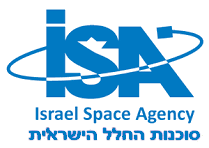
The Israel Space Agency is a governmental body, a part of Israel's Ministry of Science and Technology, that coordinates all Israeli space research programs with scientific and commercial goals.

After independence, Jawaharlal Nehru, the first prime minister of India, initiated reforms to promote higher education and science and technology in India. The Indian Institute of Technology (IIT)—conceived by a 22-member committee of scholars and entrepreneurs in order to promote technical education—was inaugurated on 18 August 1951 at Kharagpur in West Bengal by the minister of education Maulana Abul Kalam Azad. More IITs were soon opened in Bombay, Madras, Kanpur and Delhi as well in the late 1950s and early 1960s along with the regional RECs (now National Institutes of Technology. Beginning in the 1960s, close ties with the Soviet Union enabled the Indian Space Research Organisation to rapidly develop the Indian space program and advance nuclear power in India even after the first nuclear test explosion by India on 18 May 1974 at Pokhran.
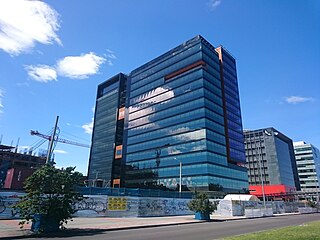
Science and technology in Colombia refers to the development of scientific research and technological innovation in Colombia, and how these in turn affect Colombian society, politics, and culture. Colciencias is a government agency that supports fundamental and applied research in Colombia.
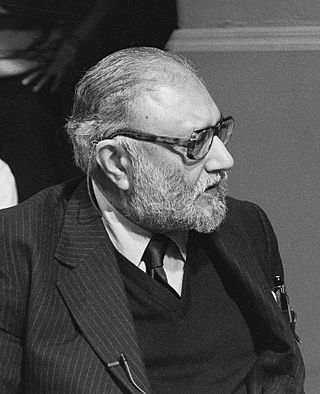
Science and technology is a growing field in Pakistan and has played an important role in the country's development since its founding. Pakistan has a large pool of scientists, engineers, doctors, and technicians assuming an active role in science and technology. The real growth in science in Pakistan occurred after the establishment of the Higher education Commission in 2002 which supported science in a big way and also became the major sponsor of the Pakistan Academy of Sciences under the leadership of Prof. Atta-ur-Rahman. The emphasis was placed on quality rather than numbers during this period. The quality measures introduced by Prof. Atta-ur-Rahman as Founding Chairman HEC included:1) All Ph.D. thesis were evaluated by eminent foreign scientists,2) All PhD theses and research papers were checked for plagiarism 3) Some 11,000 students were sent abroad to leading universities for PhD level training and absorbed on their return, 4) Appointments at faculty positions were linked to international stature of the applicants as judged from their international publications, patents and citations, and (5) Quality Enhancement Cells were established in all universities for the first time in the history of the country. (6) The minimum criteria for establishment of a new university were approved by the Cabinet and universities that did not meet these criteria were closed down. (7) The Model University Ordinance was approved setting the governance parameters for new universities. (8) A list of fake higher education institutions was prepared and made public. (9) Quality Assurance Agency (QAA) was set up within the Higher Education Commission that established Quality Enhancement Cells (QECs) as its operational units in public and private-sector universities across the country. (10) The funding of universities was linked to excellence in teaching and research under a formula based funding mechanism that considered enrolment, subjects and quality of teaching and research. The first IT policy and implementation strategy was approved under the leadership of Prof. Atta-ur-Rahman, then Federal Minister of Science & technology, in August 2000 which laid the foundations of the development of this sector On the request of Prof. Atta-ur-Rahman, Intel initiated a nationwide programme to train school teachers in Information and Communication technologies in March 2002 which has led to the training of 220,000 school teachers in 70 districts and cities across Pakistan. A 15-year tax holiday was approved on the recommendation of Prof. Atta-ur-Rahman which has resulted in growth of IT business from $30 million in 2001 to over $3 billion. The Pakistan Austria University of Applied Engineering (Fachhochschule) has been established in Haripur Hazara under a Steering Committee Chaired by Prof. Atta-ur-Rahman in which students will get degrees from several Austrian universities. Pakistan's growth in scientific output can be seen from the fact that in 1990 Pakistan published 926 scholarly documents while in 2018 the number rose to 20548, a twenty times increase.In contrast India published 21443 scholarly documents in 1990 and the number rose to 171356 in 2018, an eight times increase. In 2018, 336 people per million were researchers in the R&D in Pakistan compared to 256 people per million being researchers in India. The reforms begun by Prof. Atta-ur-Rahman FRS in 2003-2008 have continued over the subsequent decade and according to the Web of Science report, there was a 300% growth in research publications in 2019 over the decade, with 2019 marking the first year in which Pakistan was ranked above the world average in research. In 2019, Pakistan produced 300% more publications indexed in the Web of Science Core Collection than in 2010. In the decade of 2010-2019, more than half of Pakistan’s research was published in journals with Impact Factor. The global influence of Pakistan’s research is increasing as scientists in the country are publishing more in top quartile journals. The Category Normalized Citation Impact of Pakistan’s publications has risen from 0.67 to 1.03. output. As of 2020, Pakistan has 85% teledensity with 183 million cellular, 98 million 3G/4G and 101 million broadband subscribers, due to the foundations laid by Prof. Atta-ur-Rahman of the IT and telecom industry during 2000-2008. In an analysis of scientific research productivity of Pakistan, in comparison to Brazil, Russia, India and China, Thomson Reuters has applauded the developments that have taken place as a result of the reforms introduced by Prof. Atta-ur-Rahman FRS, since Pakistan has emerged as the country with the highest increase in the percentage of highly cited papers in comparison to the "BRIC" countries
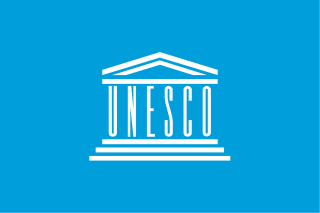
The United Nations Educational, Scientific and Cultural Organization (UNESCO) is a specialized agency of the United Nations (UN) with the aim of promoting world peace and security through international cooperation in education, arts, sciences and culture. It has 194 member states and 12 associate members, as well as partners in the non-governmental, intergovernmental and private sector. Headquartered in Paris, France, UNESCO has 53 regional field offices and 199 national commissions.
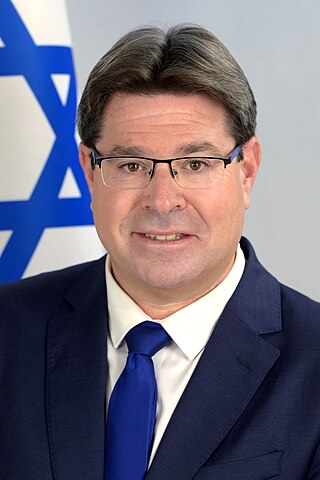
Ofir Akunis is an Israeli politician. He currently serves as a member of the Knesset for Likud and is the Minister of Science and Technology. He has previously held the posts of Minister of Labor, Social Affairs and Social Services in 2020, Minister of Science and Technology in 2015-2020 and Minister of Regional Cooperation in 2020-2021.
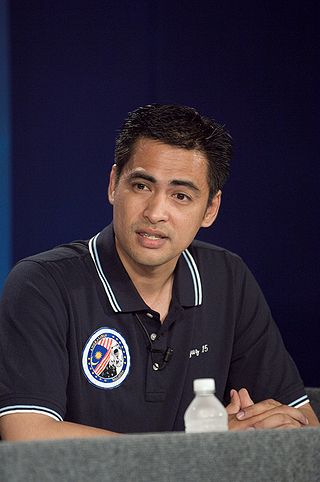
Science policy in Malaysia is regulated by the Ministry of Science, Technology, and Innovation. The ministry focuses on five areas: biotechnology, ICT policy, industry, sea to space and core science and technology. Other ministries, such as the Ministry of Agriculture and the Ministry of Health also have science departments. Training in scientific areas was promoted during the 1970s and 1980s. From 1987 to 1997 research and development used 0.24% of GNP, and in 1998 high-tech exports made up 54% of Malaysia's manufactured exports.
The National Committee for Space Research (NCSR) was a committee established in 1960 by the Israeli Government in affiliation with the Israel Academy of Sciences and Humanities to explorer the feasibility of space launches and satellites development, and to formulate the Israel Space Agency. The committee was made of a group of dedicated to the research and development of space-related sciences, and to demonstrate Israeli capabilities to its antagonistic neighbors at the time, especially Egypt.
Science and technology is Jordan's growing economic sector. This growth is occurring across multiple industries, including information and communications technology (ICT), solar and wind energy and nuclear technology.

The Ministry of Education, Vocational Training and Sports (MEFPD) is the department of the Government of Spain responsible for proposing and carrying out the government policy on education and vocational training, including all the teachings of the education system except university education, without prejudice to the competences of the National Sports Council in matters of sports education. Likewise, it is also the responsibility of this Department the promotion of cooperation actions and, in coordination with the Ministry of Foreign Affairs, the promotion of international relations in the field of non-university education.

The Ministry of Science, Innovation and Universities (MICINN) is the department of the Government of Spain responsible for developing and implementing the government policy on scientific research, technological development and innovation in all sectors. In particular, MICINN is responsible for the exercise of research, technological development and innovation competencies in space matters, including representation and participation in European Union and International organizations.
The Agencia Espacial Española is an agency of the Spanish government responsible for the Spanish space program. The agency was officially announced on 27 May 2021 and it became operational in 20 April 2023.
















